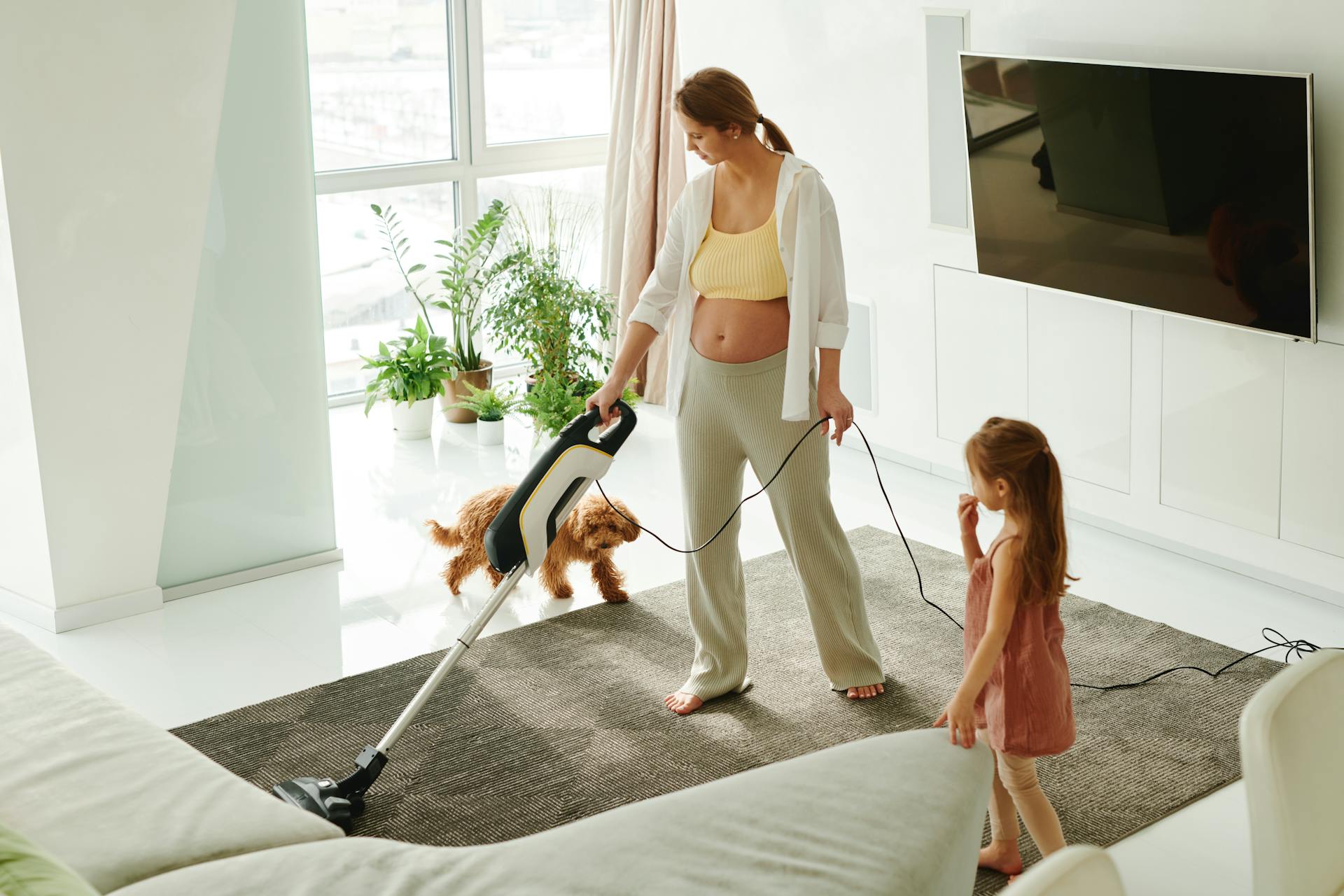

Question: Does Vacuuming Improve Air Quality?
Answer: When it comes to vacuuming improving air quality it depends. Vacuuming removes dust, pet dander, and other allergens improving air quality *in the space being vacuumed*. However, older vacuums can re-emit some particles.
Maintaining a Healthy Home Environment
A clean home contributes significantly to a healthy living environment. Many homeowners prioritize cleanliness, but the impact of specific cleaning practices on air quality often remains unclear. One common cleaning method is vacuuming. This article explores the question: Does vacuuming improve air quality?
Understanding Indoor Air Quality
Indoor air quality significantly impacts our health and well-being. Poor air quality can trigger or exacerbate respiratory problems like asthma and allergies. Common indoor air pollutants include dust mites, pet dander, pollen, mould spores, and volatile organic compounds (VOCs) from cleaning products and building materials. These pollutants circulate within the home, impacting everyone’s health, particularly those with sensitivities.
Maintaining good indoor air quality requires a multifaceted approach. Regular cleaning, proper ventilation, and the use of air purifiers can all contribute to a healthier living space. We will examine the role vacuuming plays in this process.
Click here for more information on best realtors in Orangeville
Related Article: What is the Most Common Cause of Poor Indoor Air Quality?
Related Article: How Do I Detox the Air in My House?
Vacuum Cleaner Types and Their Impact
Different vacuum cleaners operate with varying levels of efficiency.
Bagged vacuums:
These vacuums typically trap a higher percentage of particles within the bag, preventing them from escaping back into the air. However, regular bag changes are essential to maintain optimal performance.Bagless vacuums:
Bagless vacuums offer convenience, but they can re-circulate more particles during emptying if not handled carefully. The efficiency of the filtration system is crucial in this case.HEPA filter vacuums:
High-Efficiency Particulate Air (HEPA) filter vacuums are designed to capture smaller particles, including allergens and pollutants, more effectively than standard vacuums. Investing in a HEPA filter vacuum can significantly improve the impact of vacuuming on air quality. These are an investment worth considering for those with allergies or respiratory sensitivities.
Beyond Vacuuming: Other Strategies
While vacuuming plays a role in improving air quality, it is not a standalone solution. A comprehensive approach to indoor air quality management includes:
Regular cleaning:
Regular cleaning of all surfaces, including dusting, wiping, and mopping, removes allergens and pollutants. This reduces the amount of particulate matter that can be dispersed into the air.Proper ventilation:
Opening windows and using exhaust fans allows for the exchange of stale, polluted air with fresh, clean air, reducing the overall concentration of pollutants indoors. Regular airing of the house can be very beneficial.Air purifiers:
Air purifiers with HEPA filters can further enhance air quality by removing airborne particles and reducing the presence of pollutants. For homes with specific air quality concerns, a high-quality air purifier can be a valuable addition to cleaning efforts.Mould prevention:
Addressing and preventing mould growth is crucial for optimal indoor air quality. Moisture build-up can promote the growth of mould and spores, which are major allergens.
Legal and Regulatory Considerations
While there aren’t specific laws in place mandating vacuum cleaner efficiency or indoor air quality standards in residential settings, landlords have responsibilities pertaining to the condition of rental properties. These responsibilities often indirectly influence indoor air quality. For example, landlords are generally required to maintain a habitable dwelling that is reasonably free from health hazards including, at a minimum, the prevention of mould. They must also ensure proper ventilation within the property. If a tenant believes the condition of their property is negatively impacting their health due to poor air quality, they should engage with their landlord to discuss it.
Conclusion
While vacuuming does contribute to improved air quality by removing particulate matter from floors and carpets, its effectiveness depends on the vacuum cleaner’s quality and the broader approach to home maintenance. Combining regular vacuuming with other strategies, such as proper ventilation and the use of air purifiers, creates a more holistic and effective approach to maintaining a healthy indoor environment. The type of vacuum cleaner and the frequency of cleaning are critical elements to consider. For optimal results, consider investing in a HEPA filtered vacuum cleaner. This helps maintain a healthier and more comfortable living environment for all residents. [ 1 ]
References
1. https://www.nytimes.com/wirecutter/reviews/do-you-need-a-vacuum-with-a-hepa-filter/


